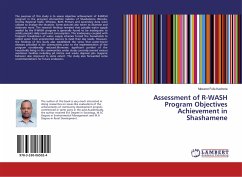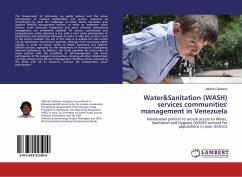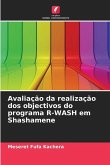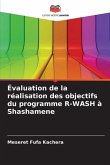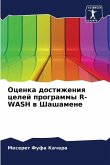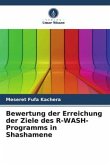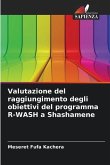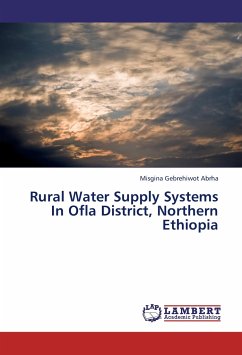The purpose of this study is to assess objective achievement of R-WASH program in the program intervention kebeles of Shashamene Woreda, Oromia Regional State, Ethiopia. Both Primary and secondary data were utilized to analyze the situation. Some pictures also taken to illustrate and elaborate more. The research findings revealed that potable water supply availed by the R-WASH program is generally found to be inadequate to satisfy people's daily needs and consumption. This inadequacy coupled with frequent breakdown of water supply schemes forced the households to collect water from unprotected sources to meet their day needs. However, the findings of this study also established the views that water-borne diseases prevailed in the communities prior to the implementation of the program considerably reduced.Moreover, significant portion of the households living in the communities under study currently owned various sanitation facilities including pit latrine and waste disposal pits.Hygienic behavior also improved to some extent. The study also forwarded some recommendations for future endeavors.
Bitte wählen Sie Ihr Anliegen aus.
Rechnungen
Retourenschein anfordern
Bestellstatus
Storno

